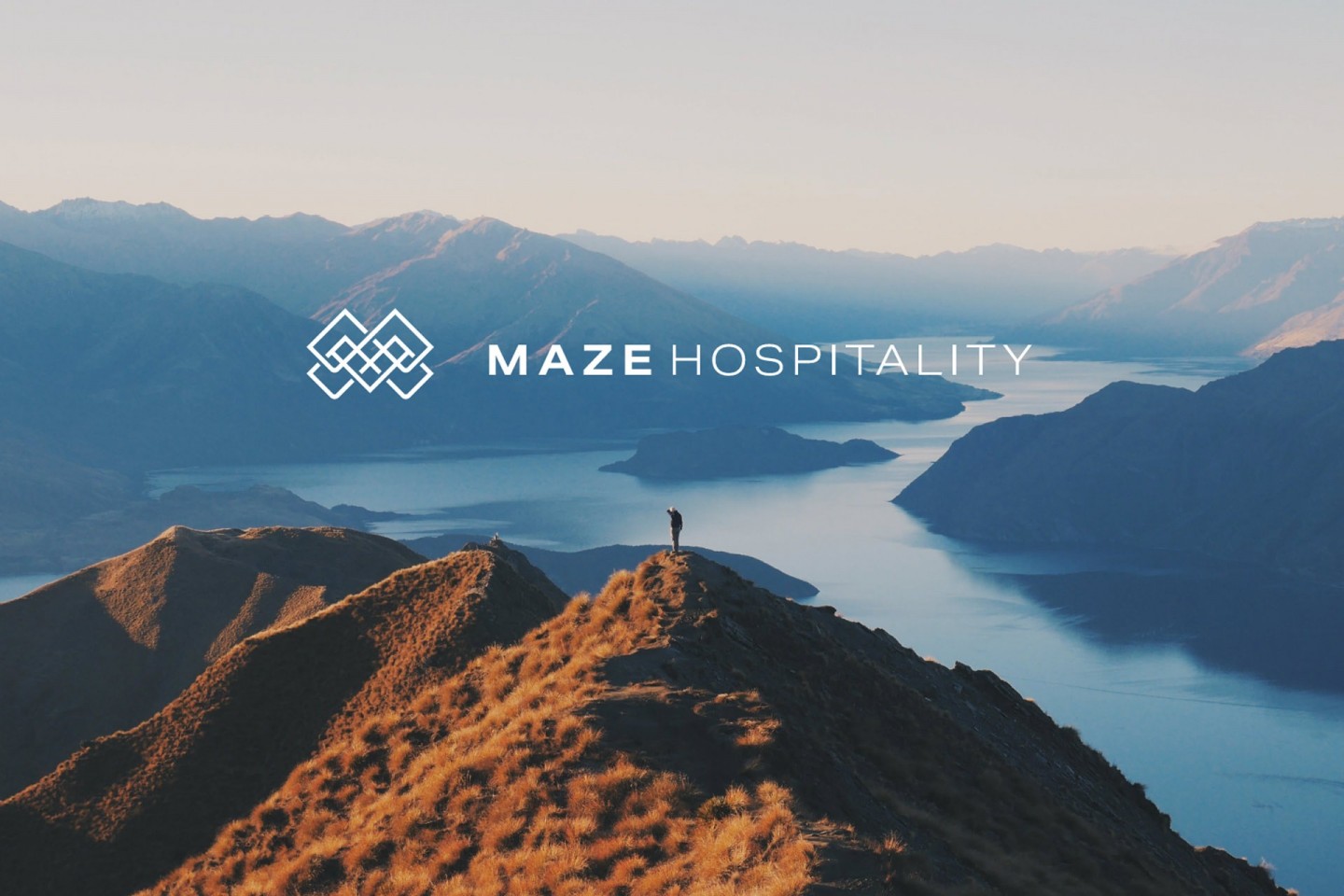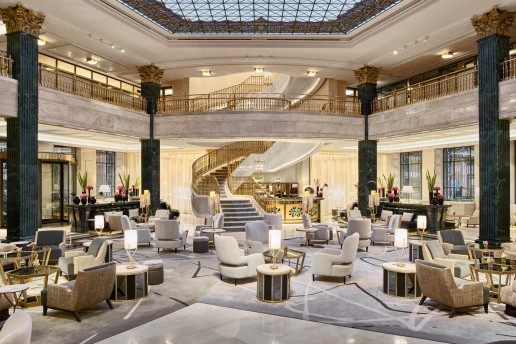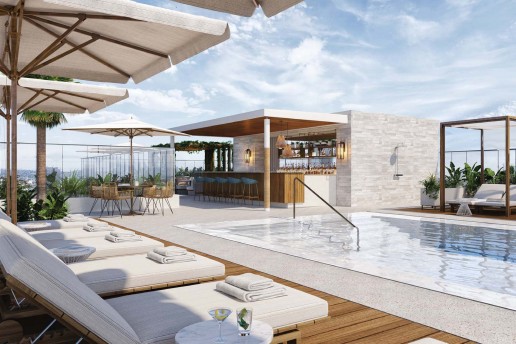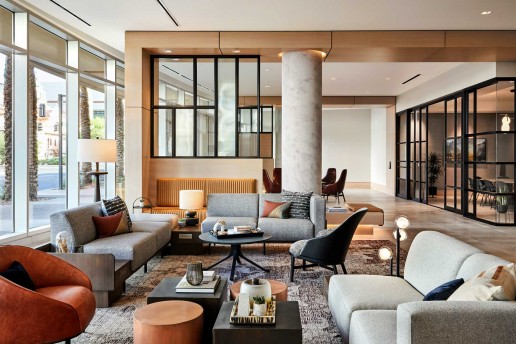Q&A: Robert Swade, Maze Hospitality
Founded during the midst of the Covid-19 pandemic, Maze Hospitality set out with the aim of building more profitable and purposeful business models, as well as advising clients on the future growth of the sector.
To get an inside look how the global advisory firm is helping companies get back on their feet and what guidance it is giving to hotels around the world, we caught up with Managing Director Robert Swade.
Why did you decide to launch Maze Hospitality?
Having spent over 20 years working in hospitality, and with a unique combination of skills across all disciplines in the industry, I believe my partners and I have insights into the challenges and opportunities in the global market, which can deliver real value to businesses seeking relevant and actionable advice.
We recognised that an opportunity existed to challenge the traditional owner and operator relationship, and we launched Maze to deliver powerful insight from our collective experience, to enhance business performance and to deliver better results for hotel owners, investors and hospitality companies.
Our solutions include supporting owners, investors and brands in relation to hotel acquisitions, development projects, asset management, brand development as well as transactional support.
What advice have you been giving to owners and operators?
We have been advising hotel owners, in relation to their current management agreements, to ensure that they are relevant in the context of today’s market and that they set out clear and concise expectations with their hotel operator. Management agreements sit at the heart of the owner-operator relationship, so it is imperative to have trusted advisors present throughout the negotiation process and the duration of the term.
We advise in relation to arrangements that reflect the market reality, and which are properly tailored to the both parties, rather than adopting a one-size-fits-all approach. We also undertake a stress test analysis of the return on investment delivered by the operating brand and the allocation of financial resource.
Other recent work has included providing advice on two resort developments in the Middle East, partnering with an international restaurant brand looking to launch its concept in London, overseeing the refinancing of another resort, and creating a development strategy for a new brand that intends to expand on a global basis.
How has your guidance evolved in light of the pandemic?
It has evolved in the sense that we are advising owners and investors that it is more important than ever for brands and operating companies to have a flexible and adaptable approach; from their contractual arrangements and fee structure to operating model, brand and design guidelines as well as expectations on capital expenditure. Moreover, for owners and operators to work through this difficult time, there needs to be even closer collaboration to ensure all parties are fully aligned with critical and strategic decisions.
Can you tell us more about the company’s ‘Hospitality Inside’ approach?
Our approach is about collaborating with businesses to look at how we can make a purposeful impact from within, to reimagine what they could look like, to optimise performance and to drive profitability and value.
We are made up of passionate hoteliers and industry insiders who know what it is like to work in a hotel and/or hospitality management company, as well as how to handle shareholder, board, owner, colleague and other key stakeholder relationships specifically in relation to the industry. Our perspective is what makes the difference and ensures that our clients feel confident that we can offer the best possible advice.
How has your previous experience helped you to deliver advice?
Our partners have worked with global brands as well as boutique operators and hotel owners across many geographies, which has enabled us to develop a clear understanding of the multi-cultural owner and investor perspectives. For example, I served as the CEO at Grace Hotels for three years and spent over a decade at Jumeirah Group, so have extensive international experience across Europe, the Middle East, the USA and Asia, which provides insights into the challenges and opportunities in the global hospitality market.
What are the key drivers in hospitality at this current moment?
The key driver is building guest, customer and colleague trust. While some brands will lean on long-standing and trusted relationships, the current crisis has presented a window of opportunity for businesses to refocus on purpose-driven models, and those who articulate their mission will stand above those who do not.
This also feeds into the other core driver, which is the need for hotels to increase their top-line revenue. The strategy will, of course, be different for each business, but this could well derive from repurposing accommodation, working across different industries or changing their customer base.
Do you expect these drivers to change in the medium-to-long term?
Even before Covid, many brands were becoming successful by developing a strong reputation based on sustainability and conservation, without compromising the guest experience. A people-centred approach is likely to be even more important going forward and could be of significant benefit in the long-term.
In terms of the need to innovate, we are likely to see shifts in the way hotels are used. For example, the drop in international travel looks set to continue even beyond the concerns around Covid, so this could see emerging trends like the rise in staycations or hotels-as-working-spaces staying for some time.
How important will the ability to adapt become going forward?
The ability to adapt is crucial whether influenced by Covid-19 or not. The pandemic has no doubt presented real jeopardy, but it has also shown us that our industry has long needed to embrace change. Despite the uncertainty, all businesses will need to approach the situation with a positive, proactive mindset and explore how to reinvent themselves – not just for current conditions but for the post-Covid world in the long term.
Related Posts
1 February 2021
Feature: Four Seasons Hotel, Madrid
1 February 2021
Thompson Hollywood to arrive in Spring 2021
29 January 2021




